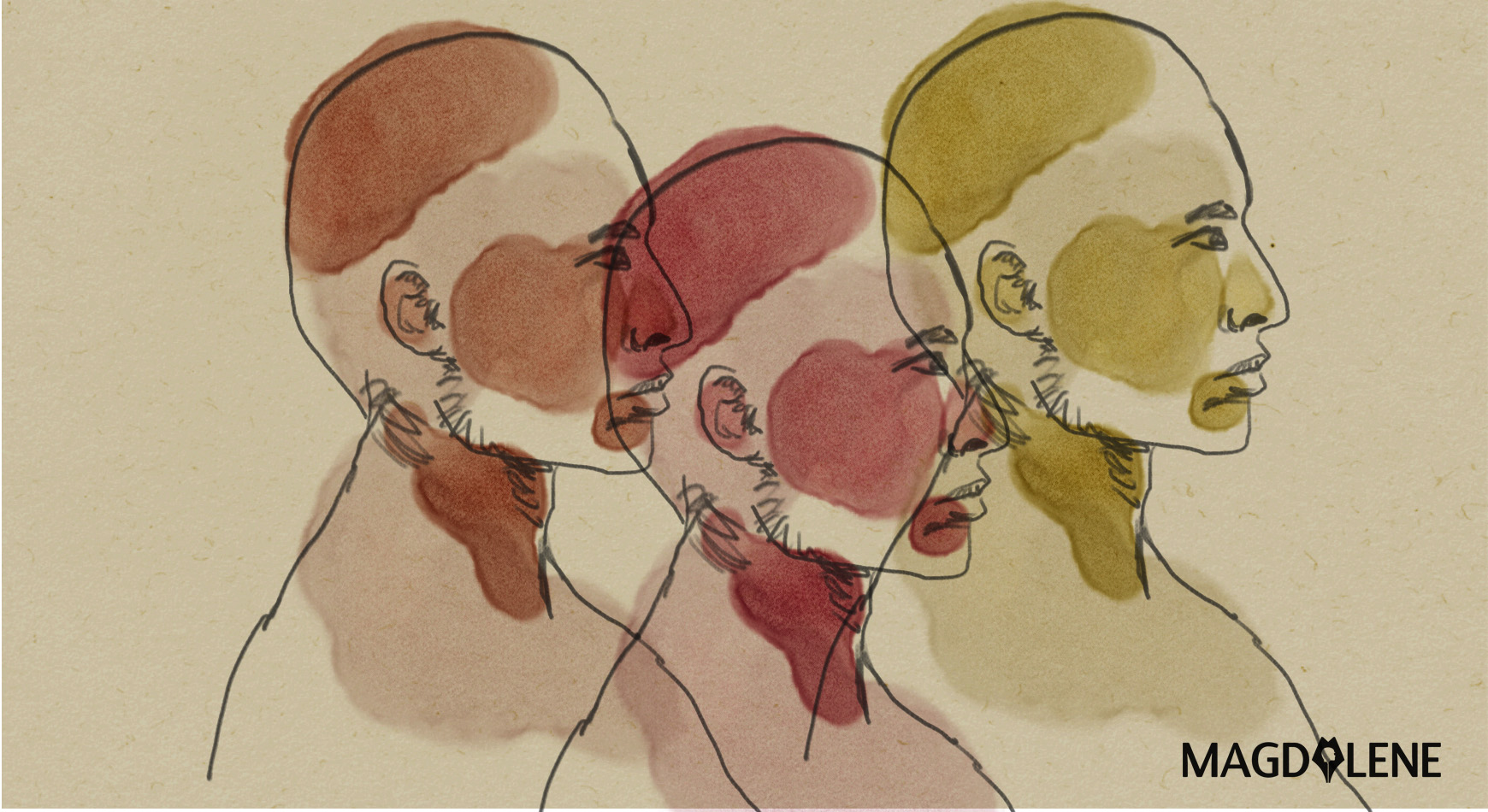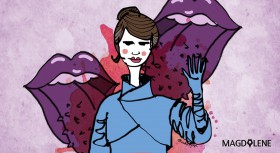In Part 1, I recount how as a biracial Indonesian, I prefer my Chinese side and felt down when I lost the connection to other Chinese-Indonesians.
Students of Indonesian Studies learn about Peranakan Chinese and Totok Chinese, a distinction that Indonesians hardly use anymore. A Peranakan Chinese is not necessarily a half-Chinese, half-Indonesian the way an Indo (-Belanda) person is a child of a Caucasian and an Indonesian. A Peranakan is understood as a Chinese in the Malay Archipelago who mixes Chinese culture with other cultures such as Javanese, Malay, and European.
I still love Peranakan restaurants, which began to appear in the 2000s. They offer Singaporean and Malaysian dishes, early 20th century memorabilias, and are popular with Chinese women. Time in a Peranakan restaurant, however, stops in 1960.
The reason is pretty global – racial violence increased in mid-1960s, whether in the United States or Southeast Asia. By 1970 race and religion have become taboo topics in Indonesia, Singapore and Malaysia. Peranakan-themed coffee table books, restaurants and fashion collection are romantic memorials to the pre-modern life.
Returning home with broken dreams, my first job seemed perfect – teaching in a small school that sells the Singaporean Peranakan image. While friendly and hostile students come from all nationalities and ethnicities, again I socialized better with Muslim teachers than the Chinese ones. And then, just when I began to enjoy teaching, the school decided it was not interested in keeping me.
Meanwhile, I tried hard to find Chinese-Indonesian friends outside the church scene. The Indocina.net forum, which had died by 2010. Language classes. Book clubs. Asian-American blogs and websites. In the end I returned to the church.
Until today my biggest social circle is still a Catholic group for singles, where I could reunite with several high school friends. Again there is no division between ethnicities, but no one talks about being Chinese, although almost everyone is Chinese (everyone agrees that “we” are Sundanese). And there’s this mystery: there is no Javanese or Batak girl – all the females are Chinese. There is no Eurasian either. And no known biracial like me.
Finding a fellow half-Chinese, half-Indonesian seems quite tricky. I knew two brothers in Australia who also have a Chinese father and a Javanese mother, but we are not close. An ex said I would get along very well with a fellow biracial, but I have not found a female half-Chinese (maybe that’s the point).
So yeah, church socializing has frequent gigs but feels less fulfilling, especially after my bro died from brain tumor five years ago. So did teaching jobs, where I could enjoy teaching English or History in classes dominated by Chinese teenagers, being the only male teacher around (my alarm is the theme of Charlie’s Angels), believing that everything is fine, until one day I was ousted without clear explanation.
Until today I still don’t understand why I cannot get along with other Chinese people. When you see non-Chinese Indonesians can flourish in the system, it’s very hard to attribute racism as a factor. Motivational people hint that personality, EQ, and social skill are the culprit, so I bought American and British self-help books and scoured blogs. Resources on Chinese culture (usually catered for Westerners doing business in China) can be unsettling.
Reading it too much and you would believe that the Chinese see everything as win-or-lose, everything as mental chess, every thing as hierarchical. But I don’t want to win a million dollar contract or become a security analyst. I just want to have a couple of bros and a couple of love interests. And be able to hold an office job for years.
So why don’t I cross to the Javanese/Sundanese, the Pribumi side? Because bigger than my fear of not being accepted is the fear that my new friends would have low opinions on Chinese people. Bon Jovi’s Indonesian fans might have had more patience if his opening act was not Sam Tsui, a biracial American. During the 2012 Jakarta gubernatorial race, female haters of Ahok (many writing in English and have Western given names) on Twitter compared him with Chinese women they disliked in campus and office.
So I was in for a surprise to find that by entering the feminism scene, I would meet more people with East Asian background. After all, Jennie M. Xue is the person who introduced me to Magdalene. I got to know Time journalist Yenni Kwok, who raises awareness on domestic violence. I am followed by Korean-American comedian Margaret Cho, who speaks on behalf of rape survivors and queer people.
21st century feminism, with its intersectional approach, trains me to listen to all perspectives. There are Muslim and Christian and agnostic women. There are gay people. There are trans people. There are conflicting views on sex trade, on war on drugs, and on repairing Jakarta.
As now the feminism lens is also applied on dating advises and media studies, my age old-questions are answered. I know why it was so difficult for me to have a steady relationship. I (kind of) know why Asian (i.e. Chinese and such) males are portrayed as asexual in movies. Feminist nerds teach that it’s fine to enjoy mainstream video games, K-pop beautiful people, and superhero box offices while still being critical about them.
Finally, I learn that being a politically conscious Chinese is not easy, anywhere in the world. A biracial American sociologist I follow tweeted that she was the only Asian in a panel on ethnic minority. Feminists and human rights lawyers are jailed in China, and Chinese-Malaysian demonstrators are mocked here by “being too nice”.
At least now I don’t feel lonely anymore. This feminism won’t bring me to my Chinese paradise, but it has helped me accepting and celebrating my Sundanese/Javanese side. This feminism teaches that nothing is wrong with being biracial. This feminism teaches that life is not limited to a choice of two.
Read Mario’s piece on sexual exploitation of Japanese girls.









Comments